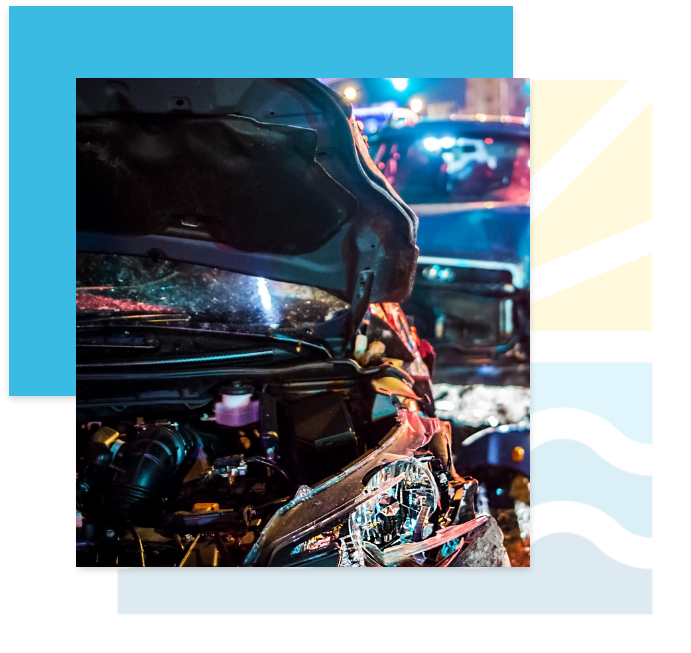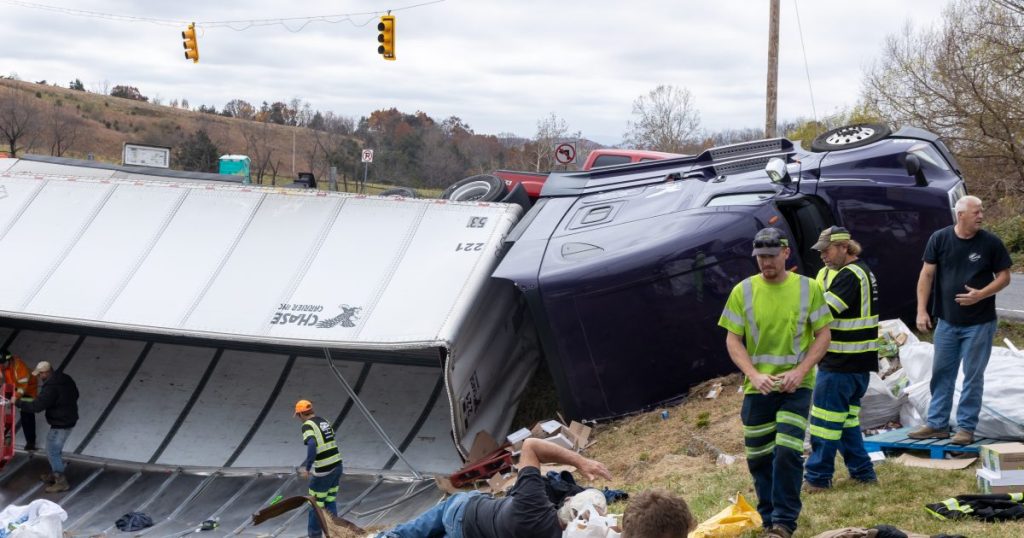Most people do not ever plan on being injured in an accident, nor are they prepared to deal with lawyers, insurance companies, and medical bills. Not only are personal injuries unexpected, but they can also be costly. To help guide you through this process, which can be overwhelming, we have created this list with brief answers to the most common questions in this field. Remember that these are general questions, and everybody’s situation is unique. You can explore this website for more information about your accident and contact an attorney to discuss your specific circumstances.

The first and most important thing you should do after being injured in an accident is to receive medical attention, depending on the severity of your pain. If you are not immediately taken to the hospital, take a moment to collect yourself. It is understandable to be physically and emotionally shaken after such an event, but any and everything you say can be used against you in court. Do not apologize or admit fault to anyone involved. If possible, it is a good idea to take pictures or videos of the accident scene and take down any witnesses’ contact information.
You don’t have to be the judge about whether or not you have a case! Virginia Beach Injury Law offers free 30-minute consultation calls. We will go over the details of the situation and help you determine whether your case has sufficient legal backing. If someone caused your injuries due to carelessness, you might have a claim. Determining fault is key in personal injury lawsuits, so hiring an attorney is essential.
It is still entirely possible to have a legitimate case, regardless of whether or not you feel any pain after the immediate aftermath. Accidents are traumatic, and the body’s biological response is to go into “shock,” which can temporarily relieve feelings of pain. You may not begin to feel any significant pain or notice other symptoms until long after the incident. For this reason, it is best practice to see a doctor as early as possible, regardless of whether or not you are experiencing debilitating pain at the moment.
The primary statute of limitations for personal injury cases in Virginia is two years. This means that a person must either file a lawsuit or settle their claim against the other person’s insurance company within two years after the accident date. While this sounds straightforward, take heed that if your accident was on March 31, 2022, you must file on March 30, 2024, at the latest. However, being practical is by far the best practice to file as soon as you possibly can. Delaying the process can hurt your chances of proving liability and your damages, as the evidence will not be fresh anymore.
Remember that you are not legally obligated to speak with the other driver’s insurance company representative. You should also not speak for anyone else involved in the case. This can be tricky territory, insurance agents can come off kind and well-intentioned, but they are trained to trick you into making statements that could hurt your case. The best thing to do in this situation is to tell the insurance adjuster to talk to your lawyer. If you do not have a Lawyer, the next best move is to tell them to contact your insurance company. This advice also applies to anybody else’s lawyer who may try to contact you.
Compensatory damages are the primary classification of damages available in personal injury cases. Compensatory damages further break down into the subcategories of economic damages, and non-economic damages. Economic damages cover tangible, and objective costs and losses, such as property damage, medical bills, cost of future treatment, lost income etc.
Non-economic damages tend to be more subjective, covering issues such as pain and suffering, mental anguish, etc. In some rare cases, if the defendant has acted in an exceptionally grievous manner, you may be able to collect punitive damages as well.
The price value of your case depends on some specific details in regards to your injuries which cannot be completely established until your case has been investigated thoroughly. You may ask us here at Virginia Beach Injury Law to give you an approximate estimate based on similar cases we have handled, however we are not legally allowed to promise that we will recover a certain amount, nor may we predict the outcome of your case. Therefore, expect estimates to be ballpark and rough, that goes for any law firm.
Having a pre-existing condition certainly does not disqualify you from filing a case or collecting damages. It is possible that the damages you collect could be reduced to account for whatever your pre-existing condition might be, but you may still hold another person accountable for making the condition worse, or aggravating it. In some ways, your condition is irrelevant, as someone without the condition would have been injured as well. That in mind, cases involving pre-existing conditions can become more complicated than other cases and may require expert assistance, so hiring a lawyer in this situation would be even more recommended.
This is a gray area and can be difficult to parse as Virginia is one of only a very few states that has what is known as “contributory negligence”. Most states have the policy of “comparative negligence” where the damage caused by the two parties is accounted for and calculated into a percentage to determine what damages each party is responsible for.
In a contributory negligence state, such as Virginia, a party must be found without fault in order to make any kind of recovery. As harsh as it sounds, this means that even if someone is found only one percent responsible for the accident, they may be barred from collecting damages from the other party.
If you are unsure whether or not you could be found partially responsible for an accident, you may contact us for a free 30-minute consultation to determine whether or not a contributory negligence defense could be used.
Contrary to the popular image of legal dramas, the vast majority of personal injury cases never go to trial. The most common scenario for these cases is that they end in settlements with either the defendant or an insurance company. The truth is, it can be unpredictable as to how long it will take to reach a settlement. If you are without legal representation, the insurance companies may drag out the process in hopes that you accept a low-offer, or that the statute of limitations will run out.
Generally, the more significant the injuries sustained are, and the more money there is on the line, the longer it will take for a settlement, because the parties involved will fight harder. If the case is complicated, and it's unclear who is at fault, things can also drag out for quite some time. Hiring an attorney has the benefit of incentivizing an insurance company to make you a fair offer much earlier on in the process, since they know their subtle manipulation tactics will be less likely to work.
A release is simply a document that a party signs in exchange for collecting on their settlement. In a nutshell, signing a release means you agree to “release” every legal claim you have against any and all defendants and their insurance company for the accident at hand. Do not forget that a release will typically cover any defendant whom you sued or paid a settlement, as well as any other potential defendant (this includes parties that were not involved in litigation). It should also be noted that if you are married, your spouse may be obligated to sign the release as well.
In the majority of cases, there should not be a significant delay between reaching a settlement and receiving your check. Most insurance companies prefer to be efficient with their case files, as such, you can usually expect the check to be mailed within two weeks of signing the settlement agreement.
Some insurers will wait until they receive your signed release before they start processing your check. When you have your check, if you’re being represented by an attorney, they will create a settlement statement. The settlement will show the total amount of money collected, as well as the subtraction of lawyer’s fees, court costs, and any other relevant deductions. After this, you will sign the settlement statement, and receive a check from your attorney for the remainder.
Unfortunately, the defendant’s insurance will not pay bills without liability being established, meaning you will have to cover your own expenses initially.
If the costs prove to be too much you may be able to use a Personal Injury Protection (PIP) after an accident with a motor vehicle. If your injury occurred while on the clock at work, you could also potentially utilize your workers’ compensation benefits. If you fall into the category of uninsured, you should still be able to locate a doctor or hospital that can give you care under the agreement that they will receive compensation after you reach your settlement.
You will not receive any kind of payment from the at-fault party’s insurance company immediately after the accident happens. As with medical bills, you may also use a PIP if your accident occurred in a car or other motor vehicle. There’s also the possibility that you can receive short or long-term disability benefits through your place of employment. These types of insurers will likely need to be paid back after you reach a settlement. If you have any paid time off through your job, such as sick time or vacation time, it can be wise to use those as well and that money can be compensated in your settlement.
There are a lot more options for compensation if your injury occurred on the job. In the vast majority of cases, you will be eligible to use workers’ compensation benefits through your employer. Workers’ Compensation will cover your medical bills, as well as some of your lost wages.
There are also cases where Workers’ Compensation may pay for vocational rehabilitation assistance, in addition to lump-sum payouts depending on your injury or disability. It is also possible to sue a third party, such as a manufacturer if you happened to injure yourself with defective equipment. This is another situation where hiring an attorney is more highly recommended, as a personal injury claim in this situation could payout more than worker’s compensation.
Not all situations like these require a lawyer. If you are rear-ended, it is clearly the other driver’s fault, and neither of you is seriously injured, then you may be able to handle negotiating with insurance companies on your own. If however, the other driver is contesting liability, the facts of the case are complicated, you have significant injuries, and a lot of money is on the line, you probably do not want to risk navigating the situation without an attorney.
These frequently asked questions are designed to address some basic concerns you may have regarding a personal injury and the options you have moving forward. Navigating this process can be incredibly complicated which is why having a professional attorney representing you can make all the difference. Attorney Ron Kramer of Virginia Beach Injury Law specializes in representing people who have been seriously injured or killed as a result of someone else’s negligence. Take advantage of a free consultation today, and find out if you have a case!
Whether you're local or a vacationer, If you or someone you love has been injured or killed in the Virginia Beach area or Hampton Roads, contact us today to discuss your case:

